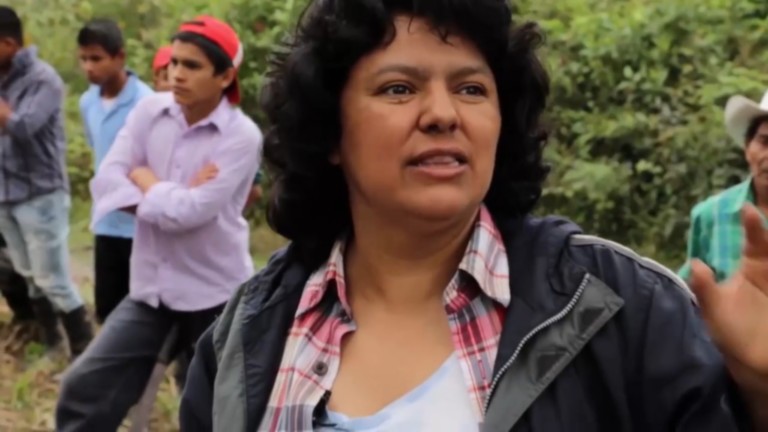Assuming a New Paradigm
Is it worth dying to protect the environment, the water, the planet? Honduran environmentalist Reynaldo Domínguez was asked this question, and his response was: "It is a matter of conscience. Life for life" (El Heraldo, 2023).
When I received the invitation to write an article about environmental defenders in Honduras, the figure of Berta Cáceres immediately stood out. She was an indigenous Lenca leader, feminist, and co-founder of the Civic Council of Popular and Indigenous Organizations of Honduras (COPINH). Recognized locally and internationally as a brave defender of human rights and indigenous peoples. Bearing the heritage of her ancestors, she faced the extractivist model that squanders rivers, mountains, and forests. She was murdered in March 2016, while leading an intense struggle against a hydroelectric project in the western part of the country.
In Honduras, since 2012 to date, 159 environmentalists have been murdered, although violence against activists began much earlier. Beyond the numbers, it is important to see the victims as real people. Jeannette Kawas. Berta Cáceres. Carlos Luna. Adalberto Figueroa. Enriqueta Matute. Margarita Murillo. Francisco Martínez. Lesbia Urquía. These are some of them. Each one was loved by their families, friends, and community. However, under the gaze of the extractivist economic model, they were only an obstacle.
The paradox of an economic model that promotes progress by destroying life can only be faced with the wisdom of indigenous peoples who propose to restore the alliance between human beings and nature, recognizing the fraternity that unites us with other creatures, who also have the right to exist and inhabit this planet which is our Common Home. This paradigm becomes tangible in the struggle of environmental defenders who, with their lives and memory, remind us of the profound responsibility each of us has in the face of the complex socio-environmental crisis.
It is imperative to do something about it and defend our Home. There are many ways.
Through the encyclical Laudato Si, the Church mobilizes us towards the urgent integral ecological conversion to respond to the cry of the poor and the Earth, promoting ecological economy and education, the adoption of sustainable lifestyles, the resilience and empowerment of communities, and promoting ecological spirituality1.
On the other hand, it is possible to take a step further by supporting citizen initiatives that drive changes in public policies, demand justice, and effective protection for environmental defenders.
"The home of all is being plundered, destroyed, and damaged with impunity. It is a grave sin not to defend it out of cowardice." Pope Francis, speech in Bolivia 2015.
[1] Laudato Si´s Objectives

